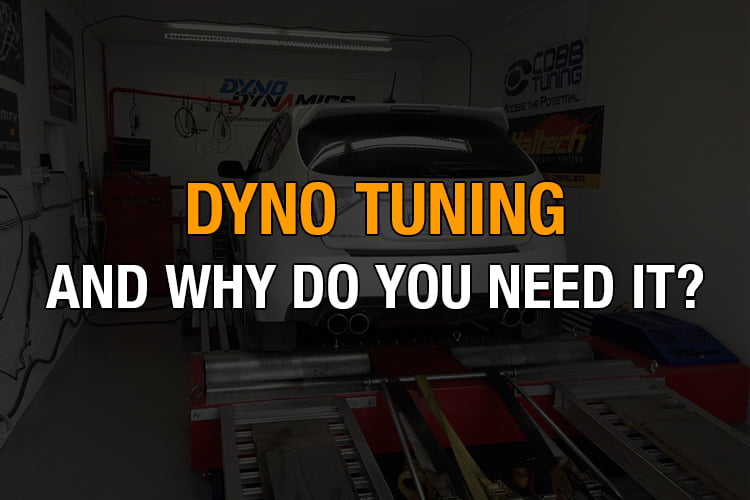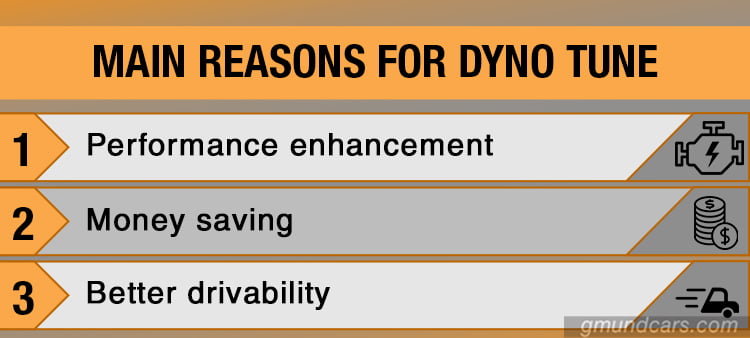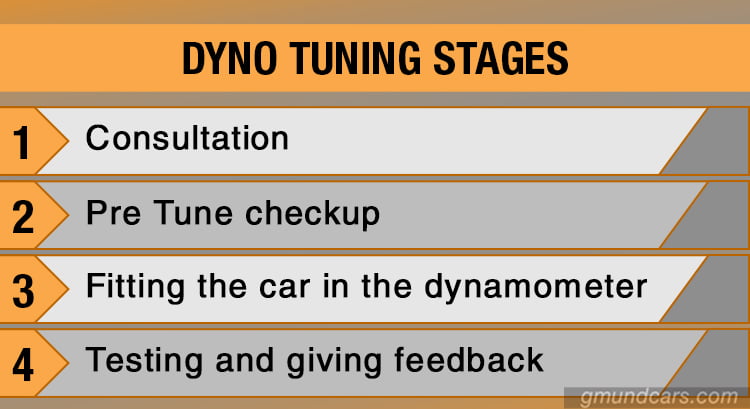The ongoing advancement in the automobile industry has led to the invention of numerous maintenance and enhancement technologies designed to boost the efficiency of cars. A significant component of this technology is the Dyno Tune.
Dyno tune helps to measure the torque and engine speed. As a result, the technician can adjust some settings to improve engine performance while maintaining fuel efficiency.
If you’re looking for the safest and easiest way to get more power efficiency out of your automobile, then dyno tuning is the best bet for you.

What Is A Dyno Tune?
Dyno tune is a high technology tune-up for vehicles, specifically the engine, using specialized Dynamometer equipment. It is a widespread belief that dyno tuning is done only on racer cars, but that’s not the case; it can be done virtually on all vehicles.
Dyno tuning is the process of enhancing and improving a vehicle’s performance. A lot is going on under the hood of a car that dyno tuning can help improve or prevent. The result of dyno tuning a vehicle is impressive and worth all the time, effort, and money.
Why Do You Need A Dyno Tune?

There is a lot going on inside an automobile that can affect its performance and efficiency. A dyno tune is used to adjust your car to get the most power out of your vehicle. Specifically, this method will prevent pinging, poor fuel efficiency, dead battery, and surging. When you dyno tune your vehicle, you are guaranteed to get maximum power, a cleaner burn, more horsepower output, and better drivability after modifications. It also hinders or alleviates the backfire.
Another reason you should consider this option is that it can prevent you from visiting the technician very often. Remember the phrase, A stitch in time saves nine? Yes, dyno tuning will save you from spending extra costs on your car in the future. An engine that has been tuned will use less power to run the vehicle than one that has not gone through the procedure. More so, the process lowers the car’s depreciation, thereby extending the life expectancy of your car.
If you’re looking for ways to get performance work done on your car to improve its efficiency, you may consider getting a dyno tune to enjoy the optimum performance for your vehicle.
Read more: Car Warning Lights: What You Should Know
What Should You Do Before Performing A Dyno Tune?
If you’ve decided to dyno tune your vehicle, there are some things that you should do before booking a session. It is vital to ensure that all car parts are competent enough. This process helps your automobile gain maximum results after dyno tuning.

Filters And Spark Plugs
Ensure to check the various plugs in the car to determine if they are perfect. Also, check for the fuel, air and oil filters.
Oils And Fluids
New oil, including gearbox fluids, should be used before performing a dyno tune to make sure things operate smoothly.
Belts And Hoses
All belts and hoses should also be examined, ensuring they are all in good form. The vehicle’s tires should not be left out.
Tires
In the course of dyno tuning, the tires are placed on the rollers; therefore, they must be undamaged and secure. You do not want to take the chance of blowing the tires on the machine while it’s running. The risk is a huge one and not palatable in the least.
In a nutshell, all vehicle parts need to be healthy before dyno tuning.
Read more: Car Tune-Up Checklist and Cost: What Nobody Told You Before
Dyno Tuning Procedure

Consultation
Dyno tuning procedure starts from the very basics. Basic in the sense that the process begins with customer consultation. The technician has to know all about your vehicle in case there are any underlying problems to look out for or not. Armed with this information, the technician can better customize the tune to suit your car’s needs. This process allows the technician to tune the car precisely to your requirements.
Pre Tune Checkup
Then there is the pre-tune check-up. A mechanic will check the engine compression to determine if it’s mechanically sound, ensuring oil and fluid levels are ideal. The inspection is taken a little deeper, checking for common problems that can cause hiccups and delays on the Dynamometer. Issues like oil leaks, dirty injectors, damaged spark plugs, wires, etc., are all inspected. Additionally, crucial but straightforward checks can include intake pressure testing and fuel flow testing. The heat range of the spark plugs is monitored to ensure that it’s right for the vehicle in question.
Fitting The Car In The Dynamometer
Now the vehicle is fit for the dyno. It will experience some driving conditions with different speeds and load capacities. During that process, mechanics can monitor the car’s performance. Meanwhile, they also monitor the carburetor’s circuit. After those stages, the mechanics could make certain that a safe and optimal tune is achieved with the engine running.
Testing And Customer Feedback
After the dyno tuning is finished, a detailed report is given to the car owner. The owner could ask the staff at the center for explanations if necessary.
FAQS
How Long Does a Dyno Tune Take?
Dyno tunes take a long time depending on the car, preceding fault, and the tuner. A dyno tune might take anything from one to five hours.
When Should You Dyno-tune Your Car?
Tune-up intervals vary from vehicle to vehicle. Some cars have the interlude of tune-up stated in their manual, and some don’t. However, it is essential to watch out for signs like difficulty in starting, stalling, etc. If you see these signs, your vehicle might need a tune-up.
Is Dyno Tune Worth It?
Absolutely. You get to have the best experience with your vehicle.
Read more: Torsion Axle Vs. Leaf Spring: Which One Is Better?
CONCLUSION
Dyno tune is available to all drivers to have the best experience with their cars. The benefits of this procedure are endless, from smooth running to a longer life span for your car. Accordingly, if you want to get more power out of your vehicle, dyno tuning is an outstanding way you can take into consideration.